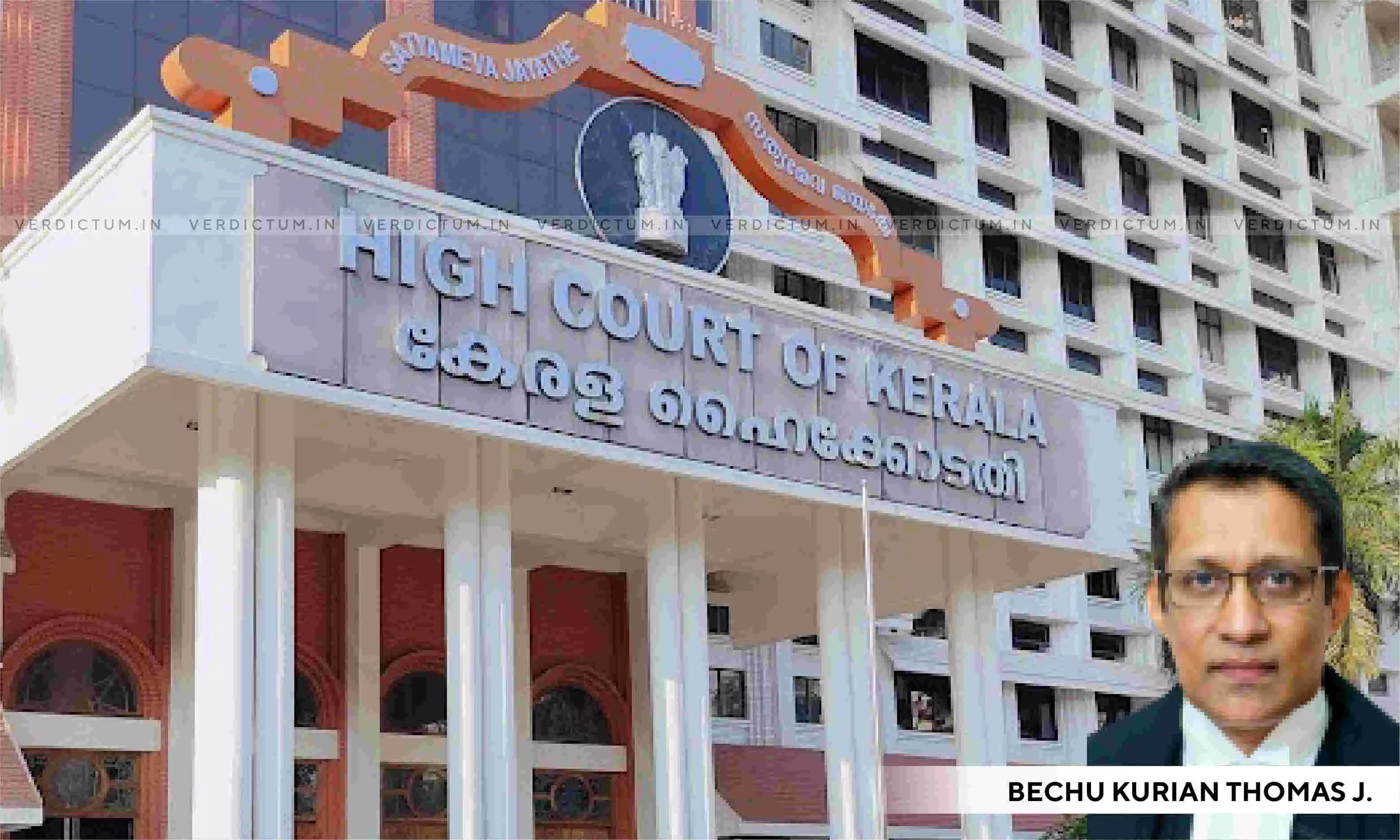
Offence Of Cheating U/s. 420 IPC Is Not Attracted For Failure To Repay Deposits If Interest Was Aready Received By De-Facto Complainant: Kerala HC
 |
|Finding that for the last more than five decades the petitioner had been indulging in the business of financing and had never ever cheated a single depositor and his only failure to pay interest for one depositor triggered a chaotic situation when all the depositors started demanding immediate repayment, resulting in the crimes being registered, the Kerala High Court held that though the failure to repay the deposits may attract offences under various statutes, however, the offence of cheating under section 420 cannot be attracted, at least prima facie, when even the final report has not yet been filed.
The High Court therefore held that the petitioner can only be held to be not guilty of the offence of section 420 IPC at this juncture, since the materials collected by the ED itself show that amounts as interest or under other terminologies have already been received by the defacto-complainant and other depositors till the month the nation went into a lockdown.
A Single Judge Bench of Justice Bechu Kurian Thomas observed that “Collecting deposits by individuals or firms or by unincorporated associations from the public without permission from the RBI is an offence under section 45S of the Reserve Bank of India Act, 1934. However, the lack of authorization to collect deposits by itself will not, prima facie, make it an offence under section 420 of the IPC in the absence of an element of dishonesty or fraud existing from the inception”.
The Bench clarified that the very purpose of the BUDS Act was to prohibit the collection of deposits under any unregulated schemes, however, the offence under the BUDS Act is not a predicate offence.
Similarly, the offence under the Kerala Protection of Interests of Depositors in Financial Establishments Act, 2013, is also not a predicate offence, since all deceptions do not amount to cheating under law, as to constitute cheating, the deception must be done with a dishonest or fraudulent intent, added the Bench.
Advocate C.S. Manu appeared for the Petitioner, whereas Advocate Jaishankar V. Nair appeared for the Respondent.
The brief facts of the case were that the petitioner, an accused on the files of the Directorate of Enforcement, alleging offences punishable under section 4 of the Prevention of Money Laundering Act, 2002 (PMLA), had sought for regular bail under section 45 of the PMLA. Prosecution alleged that petitioner and the other accused had cheated many depositors by collecting fixed deposits without authority, after promising to pay interest and failed to pay either the interest or repay the amounts collected and thereby committed the offence of breach of trust and cheating. The amounts so collected were allegedly used as untainted money for the acquisition of property and has thus committed an offence under section 3 of the PMLA. Later, the accused was arrested and the crimes were transferred to the CBI alleging offences under the Banning of Unregulated Deposit Schemes Act, 2019 apart from sections 406 and 420 of IPC. The petitioner filed an application for grant of default bail under section 167(2)(i)(a) of CrPC, which was dismissed.
After considering the submission, the Bench observed that when the money laundering activity is done to promote activities related to terrorism and NDPS offences, it certainly partakes the character of a heinous crime.
Concededly, the Bench found that there is no allegation in the instant case that petitioner had used any of the alleged proceeds of crime for activities like terrorism or for committing NDPS offences, and hence the maximum punishment prescribed for the offence allegedly committed by the petitioner is a period of seven years imprisonment, along with fine as per section 4 of the PMLA.
Though FIR has been registered against the petitioner for the offences under the BUDS Act and under the Kerala Protection of Interests of Depositors in Financial Establishments Act, 2013 as well, the Bench highlighted that those offences are not scheduled offences under the PMLA and hence cannot be termed as predicate offences.
There is nothing to indicate how the offence under section 471 IPC applies to the petitioner's case, added the Bench.
The Bench further added that “For the last three and a half years, the predicate offence has been under investigation. No charge sheet has been filed for the predicate offences. Neither the local police nor the CBI has been able to file a final report regarding the predicate offences alleged. The said circumstance assumes significance while considering the bail application of an accused who was in custody for more than a year and seven months”.
The High Court therefore held that the petitioner is entitled to be released on bail executing a bond for Rs. Two lakhs.
Cause Title: Thomas Daniel v. Enforcement Directorate and Ors. [Neutral Citation: 2023/KER/54162]
Click here to read/download the Order